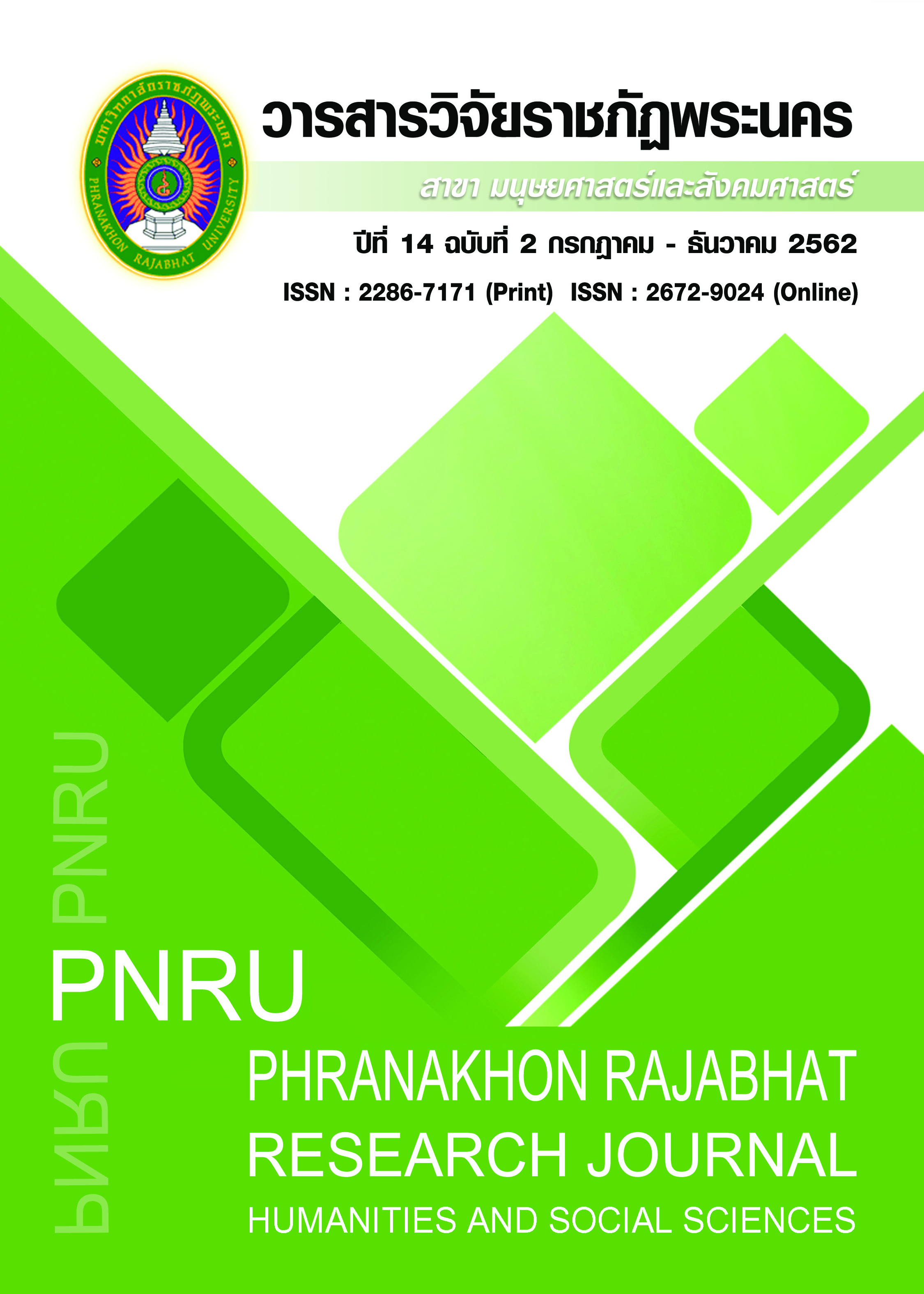E-COMMERCE WEBSITE CREATION FOR SELLING ARTS OF FACULTY OF FINE & APPLIED ARTS, BURAPHA UNIVERSITY
Main Article Content
Abstract
This study has 3 objectives; 1. to explore approaches to designing an e-commerce website for selling arts of the Faculty of Fine & Applied Arts at Burapha University, 2. to create an e-commerce website for selling arts of the Faculty of Fine & Applied Arts at Burapha University, and 3. to understand user’s satisfaction with the e-commerce website for selling arts of the Faculty of Fine & Applied Arts at Burapha University. In the study, a mixed-method approach was applied, combining qualitative, experimental, and quantitative methods. In the
qualitative research, the data were collected by in-depth interview method of from 18 key informants, the data were analyzed for designing the e-commerce website for selling arts of the Faculty of Fine & Applied Arts at Burapha University. In the experimental research, the programming codes were written to create the e-commerce website for selling arts of the Faculty of Fine & Applied Arts at Burapha University. Then, in the quantitative research, assessed the satisfaction of 100 participants, who visited the website and who were interested in paintings.
Article Details
Each publish articles were copyright by Phranakorn Rajabhat University
Any contents which appeared in each articles in the journal were authors personal opinion. It did not relate to Phranakorn Rajabhat University and other instructors in the university. Each authors would take responsibility on their articles. If there are any mistake, the authors will take responsibility themselves
References
Brandbuffet. (2017). Digital movement statistics around the word for 2017. Retrieved January 3, 2018, from https://www.brandbuffet.in.th/2017/02/digital-overview-globalstat- 2017/ (in Thai)
Clarke, J. B., & Wheeler, S. J. (1992). A view of the phenomenon of caring in nursing practice. Journal of Advance Nursing, 17, 1283-1290.
Colaizzi, P. F. (1978). Psychological research as a phenomenologist view it. In R. S. Valle and M.
Designschool. (2018). Principles of E-commerce Website Design. Retrieved January 2, 2018, from https://www.grappik.com/create-ecommerce-website, accessed on 2015.
Eamsiriwong, O. (2013). E-commerce (managerial perspective). Bangkok: SE-ED. (in Thai)
King. (Eds) Existential-phenomenological alternatives for psychology. NY: Oxford University Press.
Lifeatpkru. (2017). What are characteristics of a good E-commerce Website? Retrieved January 2, 2018, from https://lifeatpkru.wordpress.com (in Thai)
Ngamwong, R. & Pinrattanaporn, R. (2015). E-commerce system on mobile phone for ‘One Tambon [District], One Product’ (OTOP), Ratchasima province: case study of Pak Tong Chai career development center. Nakhon Ratchasima: Faculty of Business Administration Raiamangala University Of Technology Isan. (in Thai)
Phoongamdee, S. (2004). Art business. Bangkok: My Book Publishing. (in Thai)
Phosa-aad, S. (2017). Developing E-commerce system with virtual reality for augmenting virtual buying experience. Bangkok: Science and Technology Infrastructure Databank (STDB). (in Thai)
Pitchayasoontorn, P. (2014). Basic arts and design. Bangkok: Chulalongkorn University Press. (in Thai)
Piyaket, R. et al. (2004). Analytical study project on development of E-commerce operators. Creative Art Business / Online Print. Retrieved from January 8, 2018 from https://www. dbd.go.th/images/content/total_01.html (in Thai)
Silpornchai, J. (2014). The development of electronic commerce system for Ban-Bon-Doi Shop, Mae Wang, Ching Mai. Master of Science Program in Computer Science, Rajamangala University of University of Technology Lanna. (in Thai)
Sites. (2017). Selling process in E-commerce. Retrieved December 10, 2018, from https:// sites.google.com/site.
Suanpang, P. (2011). The development E-commerce systems for Thai tourism industry. Bangkok: Suan Disit University.
Wongkietkajorn, P. (2016). Learning methods for qualitative research. Bangkok: Panyachon Distributor. (in Thai)


